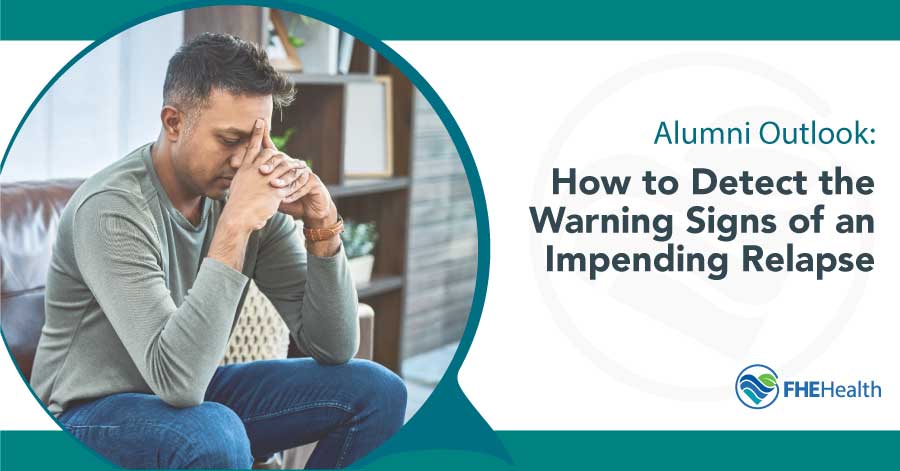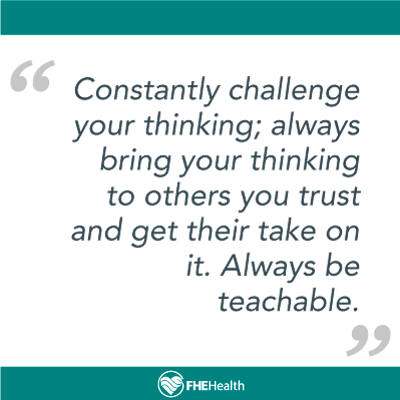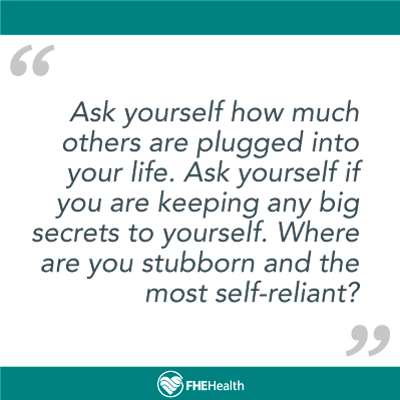
Relapse.
It’s a word that is discussed a lot in recovery, as expected. It’s our worst fear whether we are newly entering recovery or an old-timer of 30 years. The absolute worst thing anyone in recovery could do is pick a drink or drug up again. Sadly, relapse rates are very high across the board.
Why is that?
You have people entering recovery and acknowledging that they cannot stop themselves and need help. They know the substance they are abusing is the root of all of their problems, and they can never use it again.
They may know a lot, but they do not know how to stay sober long-term or what is best for them moving forward.
That is the problem and cause for nearly all relapses; the person who relapsed thinks they know better and what to do. The truth is they have no idea. If their mind was capable of keeping them permanently sober, it would have happened already.
My main objective, if you are reading this, is to reveal warning signs of a relapse. I believe that the root of all warning signs is that the individual in danger of relapsing is relying on their own mind again.
Self- Reliance
It is often said that step 1 is the only step you need to do perfectly. While I am a little iffy on the word ‘perfect,’ I completely understand the sentiment behind it.
Step 1 says we admit we are powerless; okay, great, but what does it mean to be powerless? It means that we were unable to do it under our own power, our mind, no matter how much we knew we had to stop drinking/using.
No matter how many reasons or promises we made to loved ones to stop, those promises were permanently broken. We even meant it when we made the promise! Those broken promises result from our minds convincing us why it is okay to pick up just one more time.
Self-reliance failed us every single time. No matter how much we planned on how we could stop, it failed and failed again.
Self-reliance can manifest in many ways and can look different depending on where you are in your recovery.
Early Recovery
 The National Institute on Drug Abuse has relapse rates for substance abuse at 40% to 60%. That’s a high number, but in my opinion, it is still much lower than what I believe it is through my experience of what I’ve seen.
The National Institute on Drug Abuse has relapse rates for substance abuse at 40% to 60%. That’s a high number, but in my opinion, it is still much lower than what I believe it is through my experience of what I’ve seen.
I’m unsure what criteria NIH uses to label something as a relapse, but that’s circumstantial. What I can state is that in early recovery, many more people relapse the first handful of months than don’t. I really can break it down to one main reason why they relapsed.
Entering rehab, we are usually at some type of bottom and haven’t been taking care of ourselves well, so we are beaten up. In that state, most people are willing to do anything and are receptive to new information.
After a few weeks of sleeping well, eating regularly, and maybe hitting the gym while doing groups about addiction, we start to feel better than we have in a long time.
Since they’re feeling better and have accrued some knowledge, their thinking mind tells them they learned what to do and know what needs to happen and how it should look.
Right, there is when the relapse warning sign alarm needs to be slammed down. Red alert, red alert! We have someone in early recovery who thinks they know what is best for them; they have returned to self-reliance.
Once that person enters that ‘I know’ mode; usually it is followed by stubbornness, getting restless and wanting to leave, and debating about why the plans they came up with are best for them.
I’m talking textbook behaviors here; I have seen it literally hundreds of times, if not more.
Once they go home, they may go to meetings and get a sponsor, but ultimately, they are discharged from treatment without realizing what they are truly up against; they are up against themselves and up against their mind.
With a few weeks or months sober, their well-intentioned mind that accepts the knowledge about addiction and agrees with it suddenly convinces the person to pick up again.
There are a million different ways the mind can convince the early recovery addict why it’s okay to pick up again, and I couldn’t possibly illustrate them all. But the main point is that no matter what the ‘reason’ was given for the relapse, it can all come back to self-reliance failing them.
So, what should you do? I’ll keep it simple, be open and take guidance in treatment; when you leave, go find other people in recovery and take guidance from them. Find a sponsor and do the steps. What is the main reason for doing the steps? To discover and rely on a NEW power (higher power) because your own power (the thinking mind) failed you and always will.
Constantly challenge your thinking; always bring your thinking to others you trust and get their take on it. Always be teachable.
Maintaining What We Have
 Of course, relapse does not only occur with the newcomer; people with many years can go back out too. Even though recovery has given them a life beyond their wildest dreams, they made the choice to pick it up again. Do you know why?
Of course, relapse does not only occur with the newcomer; people with many years can go back out too. Even though recovery has given them a life beyond their wildest dreams, they made the choice to pick it up again. Do you know why?
You know.
Exactly, they went back to self-reliance. Again, that is what everything that has to do with relapse can be brought to. The scenario looks different than the newcomer, however.
If you put together some years in recovery, then you probably did surrender; you did admit that you don’t know what’s best for you, and you remained teachable.
Long-term recovery is all about maintenance; it’s not like the risk of relapse is smaller the longer you are sober. Time has nothing to do with it. Abstaining from self-reliance every day is the goal.
As you stay sober longer, your life gets much more elaborate. You have built this new life with people who now trust you and even count on you. Even though life has gotten great, the fact remains you are still powerless.
That means that even with all of these things you have to show in your new life, you’ll still need to seek guidance and go to others for help. Many people who relapse after being successful in recovery get the ball rolling by obtaining a big problem or conflict that is going on in their lives and trying to handle it themselves.
Ideally, we don’t want to handle anything individually anymore; you should always do your best to keep a support network. I feel that way about every human being in this world, addict or not; we need people that we can vent to and take guidance from.
Once one big thing is put on our own shoulders, it can snowball quickly or slowly but can end with us picking up and reawakening that monster.
Look, no matter where you are in your recovery, trying to do it alone is guaranteed to end in disaster. That is my big fat example of a warning sign for relapse. Trying to do this recovery thing alone.
Ask yourself how much others are plugged into your life. Ask yourself if you are keeping any big secrets to yourself. Where are you stubborn and the most self-reliant?
Wherever you are on the recovery spectrum, you must keep yourself from constantly making decisions and actions based on self-reliance. Keep people in the know, keep asking for help. Your life truly depends on it.






